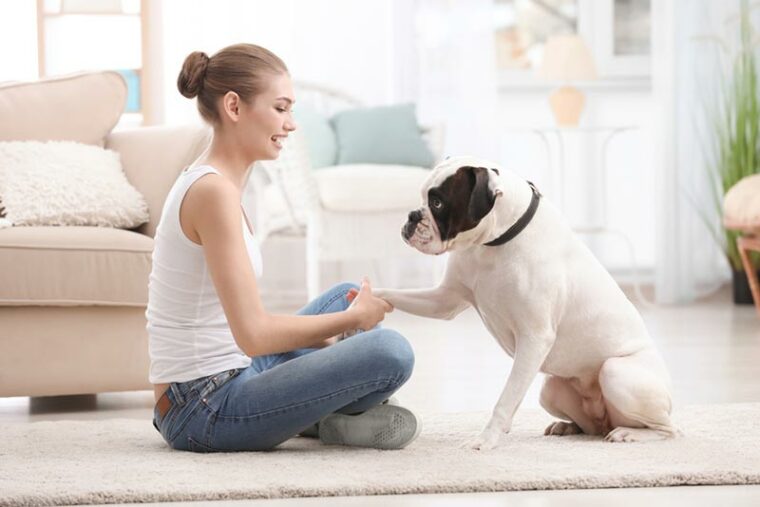
If this is your first time owning a dog, congratulations on choosing this incredible animal as your new companion! Becoming a dog owner is a never-ending learning process. Follow our 15 tips for first-time dog owners in this article to ensure the adventure with your new friend becomes much easier and more enjoyable.

The 15 Tips for a First-Time Dog Owner
1. Be Responsible for Your Dog
Being a responsible dog owner means you will make a lifelong commitment to your pet and take responsibility for its actions. You must give them love, a healthy and nutritious diet, adequate exercise, socialization, training, and veterinary care. For your community, you will need to research the local laws and regulations regarding dog ownership and follow the rules, such as licensing the pet or leashing in public areas. Ensure your dog is vaccinated with all required vaccines by law, like rabies, which is a must in most states.
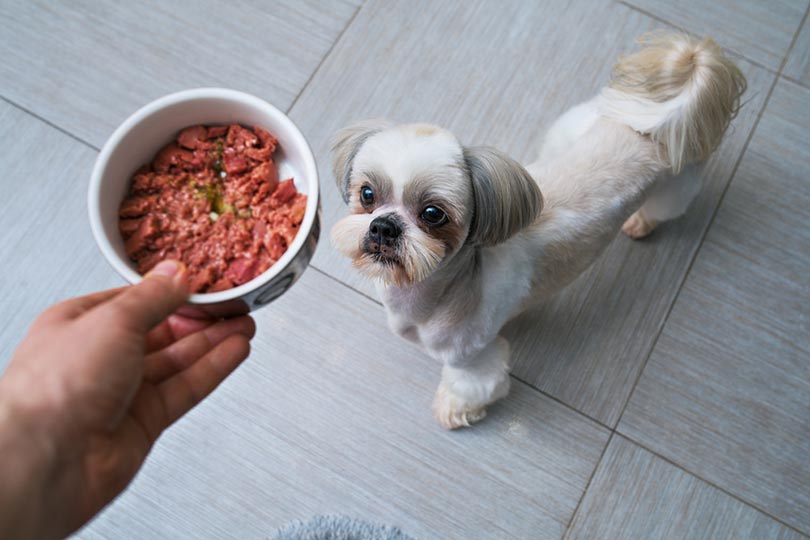
2. Be Ready to Adjust Your Schedule
It’s no surprise that high-energy pups won’t simply sit quietly on the couch while you’re busy with a massive workload. Dogs need quality time with their owners, so you’ll have to adjust your schedule once you bring a pet home. The transition will go more smoothly if you are open with your time and schedule. First, consider some ways that allow you to incorporate your dog’s demands into your daily routine.
3. Establish a Routine and Follow It Consistently
Frequent changes can make your dog stressed, so to help them adjust to a new environment faster, you should establish a daily routine and follow it consistently. For instance, you could start a new day with a walk and a tasty breakfast, then have confinement time with treats and toys until you return home, followed by another walk, dinner, and relaxing in the living room.
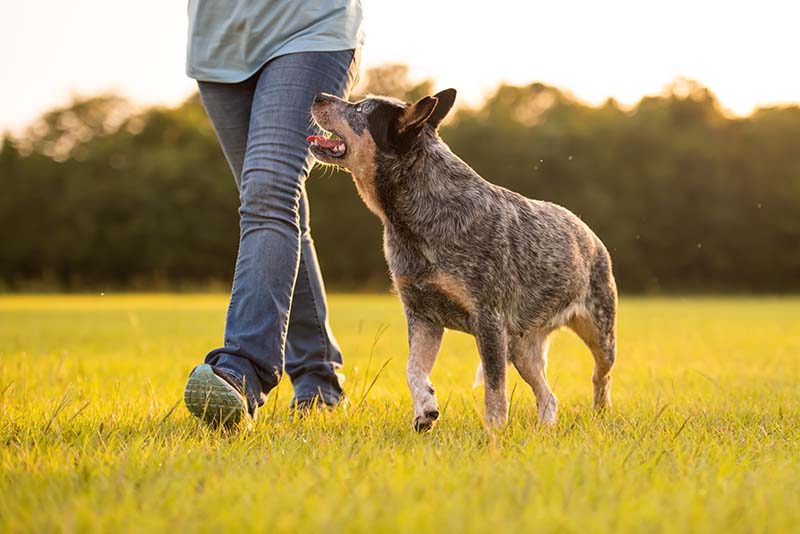
4. Be Prepared for Budget Changes
One of the biggest responsibilities of having a dog is the cost involved, and you should be ready for that. After you bring the dog home, the list of necessary costs still goes on. There will be recurring expenses you can plan for, like food, toys, a crate, grooming, and periodic medical check-ups. Unexpected emergencies might also cost a lot of money. For example, a severe medical problem or injury will likely come with a huge vet bill. Also, don’t forget to account for the expense of a pet sitter and boarding facility when you have a long business or vacation trip.
5. Find a Reliable Veterinarian
Your vet is the person who will take care of your dog’s health, teach you about them, and answer questions related to the canine world for you. To be ready for a visit as soon as the new dog comes home, you should find a reliable vet in advance. Give the vet copies of your dog’s health records and set a schedule for vaccinations and check-ups. Above all, always keep an open line of communication with them because maintaining a good relationship with a trusted vet can literally save your new animal’s life.
There will be times when you notice your dog is acting oddly or when you are unsure of how to respond to an emergency. Your vet will be the most helpful resource in all of these situations. Furthermore, knowing that you always have an expert to call in case something unexpected happens will give you peace of mind.
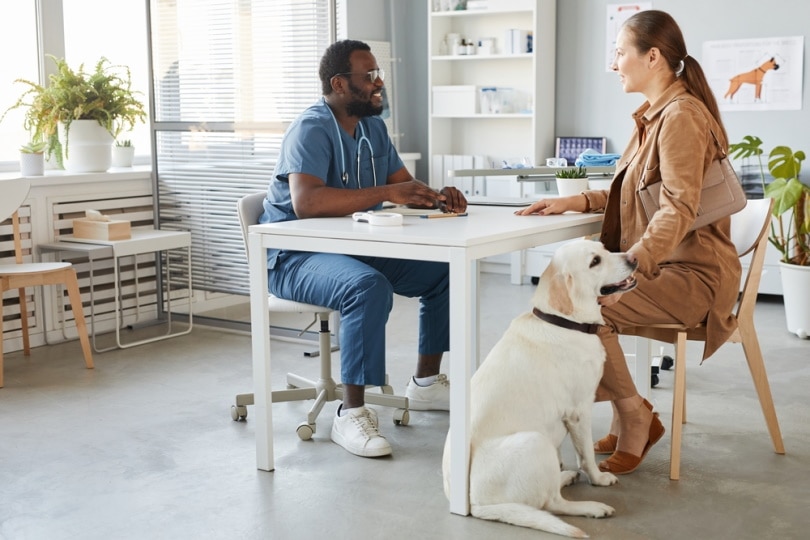
6. Get the Necessary Supplies for Your New Pet
Dogs need a variety of supplies in the new home. To ensure that their transition into your home runs smoothly, you should stock up on some essentials such as food, treats, bowls, a collar, a leash, toys, grooming tools, a crate, and other items they’re going to need in advance.
7. Dog-Proof Your Home
In order to ensure the safety of your new family member, you should dog-proof your home before they arrive.

8. Microchip Your Dog
Roughly the size of a grain of rice, a microchip is a small electronic device that contains a unique identification number that a scanner can read. It is placed under the loose skin between your pet’s shoulder blades and can be injected at your veterinarian’s office. The contact information for each dog owner associated with each number is stored in a centralized database. If your four-legged friend is lost or stolen, authorities can quickly scan and safely return them to you.
9. Choose the Right Dog Food
Remember that the foundation of your dog’s health is its diet. They deserve tasty food that meets all their nutritional requirements. However, walking down the dog food aisle and being confronted with countless options at varying prices can be overwhelming. If you’re unsure what food is best for your dog, don’t hesitate to contact your vet for advice.
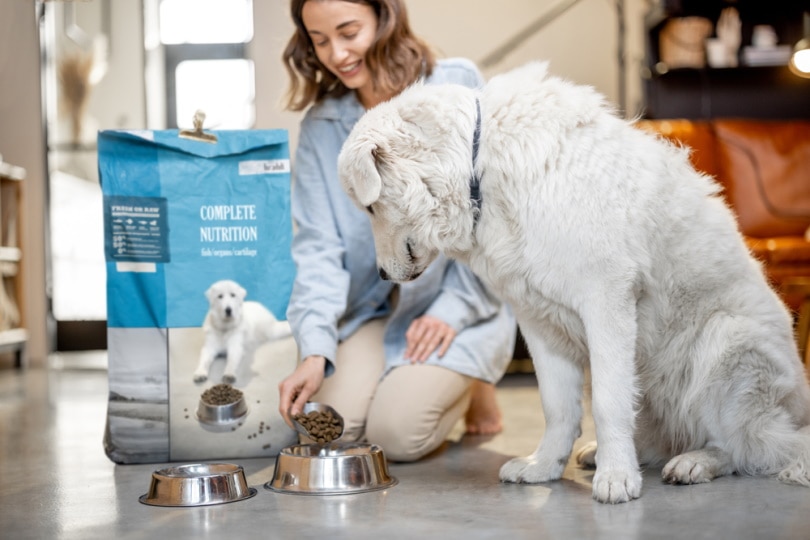
10. Don’t Wait to Train
It’s normal if you want to play with your canine for the first few days or weeks. However, if you don’t give them the proper training early, you’re setting yourself and the new member up for conflict. Whether you’ve adopted an active puppy or an adult canine, training them to be well-behaved should be one of your top priorities. The most effective method to teach them right from wrong is using positive reinforcement since they will learn that listening to the owner results in positive outcomes.
11. Don’t Give Your Dog Lots of Potty Space
When you bring a new dog home, you don’t want to give them lots of room for a potty accident. If you’re not around to be able to supervise them, assuming your dog has never been potty trained, it’s best to keep them in a crate, exercise barn, or small gated area. Put potty pads in the confinement area to allow them to have a place to go “legally” while you’re away for several hours.

12. Prepare for Behavior Problems
There is no perfect dog! Most owners will have to deal with behavior problems at some point. It might be something as simple as destructive chewing or excessive barking. More severe cases like aggression or separation anxiety can also occur. Whatever it is, you should always research your dog’s behavior problems thoroughly and find a solution before they become more serious.
13. Be Aware of Your Dog’s Health Problems
You can expect your dog to encounter at least a few health problems over the course of their lifetime. If they’re lucky, you’ll only notice some common issues in dogs that are easy to handle. Hopefully, your furry friend will not experience serious health problems or unexpected medical emergencies.
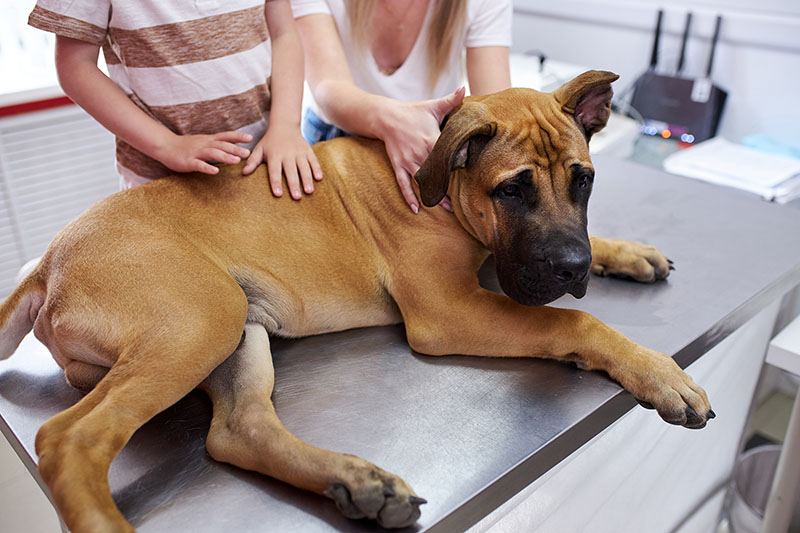
14. Socialize Your New Dog Properly
Socialization is crucial to the development of any dog. If you want your new four-legged companion to behave calmly among strangers and get along with other canines, you must start socializing them as soon as you bring them home. There are many ways to do this: playgroups, leash walks, dog parks, and play dates with some friends’ dogs are just a few.
15. Create an Emergency Contact List
In case of a sudden illness, hospitalization, or another emergency, you will probably need a surrogate—ideally someone your dog already knows—to care for this animal. It’s best to write down at least a few emergency contacts so that if one person is unavailable, you still have someone else to ask for help. Don’t forget to create a list of general care instructions and keep it in a safe place.


Conclusion
When dogs come to a new home for the first time, they are often overwhelmed and scared. However, they may become hyperactive after they get used to the new environment and feel comfortable in their surroundings. Some adapt in a day or two, while others take several months. When you bring a new dog home, it’s best to learn what to expect and prepare well before they arrive.
- Related Read: How to Be a Good Dog Owner: 11 Vet-Approved Tips
Featured Image Credit: Africa Studio, Shutterstock






